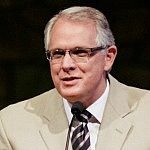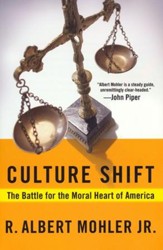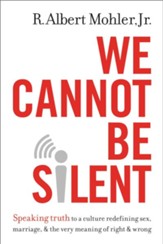Quotes about Truth-Ignored
Ephesians 4:15 tells us to speak the truth in love, not to withhold the truth in love.
The Grace and Truth Paradox, 2003, Used by Permission from Eternal Perspective Ministries, www.epm.org, p. 77.
When regard for truth has been broken down or even slightly weakened, all things will remain doubtful.
[There is] a perverse assumption now dominant among evangelicals that feelings, attitudes and relationships are all more important than truth. Unity is a higher priority than orthodoxy. Division, even for truth’s sake, becomes the most offensive of heresies.
The fact is that a sound and lively truth-basis has been ejected from the premises of modern evangelicalism. Evangelicalism has been dispossessed of truth to such an extent that it is becoming frightening. In its place experience and mysticism are house-sitting the church or, if not these, then church growth pragmatism or an unhealthy preoccupation with the psychological. But the necessary doctrines of the holiness of God and His just wrath, justification by faith alone, the transforming nature of regeneration, the sovereignty of God over all of creation and in salvation itself, the nature and extent of grace in justification and in sanctification – doctrines upon which the earlier revivals thrived – have been considered unimportant and useful only for wizened old theologs holed up in ivory towers who do not relate to the church’s future.
Reformation or Revival?, Christian Communicators Worldwide, www.CCWtoday.org. Used by Permission.
If you shoot past truth to get to experience, then you will have at best something very limited and immediate only, something which, in the final case, will produce a greater heteropraxis (wrong living). Heterodoxy always leads to heteropraxis. God has already instructed us as to how transformation of behavior is to take place. It is through the truth, not by mere experience. “Sanctify them by Your truth; Your Word is truth” (Jn. 17:17).
Reformation or Revival?, Christian Communicators Worldwide, www.CCWtoday.org. Used by Permission.
It is more from carelessness about truth than from intentional lying that there is so much falsehood in the world.
The Word of God tells us that Christ’s church is glorious… [But] today the glory of the church is thickly veiled. It is no exaggeration to assert that in the main it presents a picture of advanced decadence and extreme feebleness… Let it be said emphatically, the church is where the truth is. Sound doctrine always has been, is today, and ever will be the foremost mark of the true church. But who dares to assert that there is today in the churches a rising tide of interest in doctrine? By and large people do not go to church to learn about God from His infallible Word, but to be tranquilized. And that the glory of God is both the beginning and the end of common worship does not seem to occur to them.
Spiritual warfare is an ideological conflict, fought in the mind by assaulting the proud fortresses of ideas that sinners erect against the truth.
Jesus did not accept religious people. In fact, He kept His fiercest threats for them. You see, Jesus was not about sentimentality; He was about truth. Jesus is truth personified. He is the living manifestation of the holy law of God, and as such, He perfectly understood that religion, spiritual teaching, contrary to the truth comes from hell and sends people there. Anything but the truth is a damning deception that has the greatest power to destroy souls forever because it gives the illusion that all is well. In fact, I would go so far as to say that of all the evils in the world, of all the sins in the world, of all the iniquities in the world, our Lord knew that religion was the worst — false religion — and especially false Judaism and false Christianity. And that’s why the severest eternal judgment will be rendered for the religious who perverted the Old Testament and the New Testament.
How to Evangelize Religious People. The sermon originally appeared (https://www.gty.org/library/sermons-library/42-164/how-to-evangelize-religious-people) at www.gty.org. © 1969-2008. Grace to You. All rights reserved. Used by Permission.
Unlike modernism, postmodernism does not adhere to one fixed rule to determine the universal truth. Instead, it rejects the notion of universal truth altogether. In the postmodern worldview, truth can’t be fully known – and it might not exist in the first place. Instead, all truth claims are evaluated subjectively. What’s true for one person might not be true for anyone else.
People no longer ask “Is it true?” but “Does it work?” and “How will this make me feel?” Those latter two questions serve as a working definition of truth in our society that rejects the concept of absolute divine truth. Truth is whatever works and produces positive emotions.
Religion is not a preference. Although people are allowed to hold their own opinions, they cannot make up their own truth. This cannot be done with religion any more than it can be done with mathematics. To insist that all religions are equally true is another way of saying that all religions are equally false… If every religion is compatible with its opposite, why bother with religion at all?
To believe that two contradictory religions are both true is like saying, “2+2=4, or 5, or 37, or whatever you like.” To believe all religions simultaneously is to become hopelessly entangled in self-contradiction. One simply cannot accept the Hindu belief that there are 3000,000 or more gods and at the same time accept the Muslim belief that there is only one god. Nor can one embrace either Hinduism or Islam and Buddhism because historic Buddhism does not believe in a personal God at all. Or consider the religious opinions about the afterlife. Shintoism says there is no afterlife, just the here and now, so make the most of it. Buddhists seek Nirvana, the complete absence of desire. Christianity teaches that heaven is a place where all pure desires are satisfied in Jesus Christ (Rev. 22:4). Who is right? If there is a heaven at all, does it negate or satisfy desire? Opinions about judgment differ as well. Christianity teaches that “man is destined to die once, and after that to face judgment” (Heb. 9:27). Hindus believe in a seemingly endless series of reincarnations. Well, which is it? Both views cannot be true.
Like my lamentations about the church at times failing to display grace, the church at times also fails to display truth. Do we dare to be ashamed to speak about Jesus in fear that it might offend someone and defend it in the name of grace? Are we permissive and overly tolerant with our children, avoiding discipline while thinking we are acting in grace? Should we eliminate certain biblical principles like repentance, hell, church discipline, marriage roles, sin, God’s sovereignty and Christ’s lordship because we wish to offer grace? Should we not confront sin and hold each other accountable because we think that is a display of grace?
This is the essence of all man-made religion: Self-absorption, smug complacency, false assurance, boastful comparison, scornful disdain, desired attention, works salvation, outward appearance, spiritually deceived, absent repentance, self-righteousness, self-condemning, unloving and unmerciful, faithless and graceless.
If you want the truth to go round the world you must hire an express train to pull it; but if you want a lie to go round the world it will fly; it is as light as a feather, and a breath will carry it. It is well said in the old proverb, “a lie will go round the world while truth is putting its boots on.”
The new evangelicalism is not driven by the same passion for truth as the older form, and that is why it is often empty of theological interest. We now have less biblical fidelity, less interest in the truth, less seriousness, less depth and less capacity to speak the Word of God to our own generation in a way that offers an alternative to what it already thinks.
Today’s emphasis on packaging the gospel according to cultural demands doesn’t beautify truth but dresses up error.
Recommended Books
- « Previous
- 1
- 2














